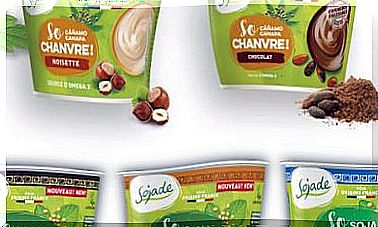Breast Milk Is An Irreplaceable Live Food
Breastfeeding contributes to the development of the baby’s immunity and microbiota that protects it against many diseases.

Whenever possible, babies should be breastfed for at least the first 12 months of life, as recommended by the World Health Organization.
No substitute product has the nutritional qualities of milk. Contact with the mother is another irreplaceable emotional food.
But now, in addition, it has been discovered that breast milk contains essential bacteria for the proper development of the intestinal microbiota and the baby’s immune system.
An invasion of beneficial bacteria
During the first days of your baby’s life, millions of bacteria peacefully invade your baby’s body. Most microorganisms come from the mother’s vaginal canal, her skin, and her mouth. It is possible that the placenta contributes, but it is a matter that is still being studied.
The success of this invasion, which lasts for the first two years of life, depends on the child and future adult being better protected against a series of diseases.
Bacteria prevents obesity and autoimmune diseases
Breast milk provides few bacteria, but they seem to be essential for the development of the baby’s microbiota and, consequently, to reduce the risk of obesity and autoimmune diseases such as diabetes and asthma, among other health disorders.
In a study conducted in Norway, researchers followed the evolution of the microbiota and body mass index in 165 children from birth to the age of 12. They found that the diversity and composition of the microbiota had a strong impact on the risk of obesity.
Breastfeeding is especially important when the baby has been born by cesarean section or the mother or child has taken antibiotics, as it compensates for their negative effect on the microbiota.
There is a symbiosis between the baby’s mouth and the mother’s breast
One of the most recent findings is that the bacterial composition of human milk taken directly from the breast is different from that of milk pumped and consumed later.
In the first there are more beneficial bacteria and of different types, while in the expressed milk some are not found and pathogenic bacteria can proliferate.
The reason for this difference is one of the more recent findings. According to a study led by Dr. Meghan B. Azad of the Children’s Hospital Research Institute in Manitoba (Canada), a retrograde inoculation occurs between the child’s chest and mouth.
That is, first the mother’s milk modifies the microbiota in the child’s mouth, and then the baby’s oral bacteria modify the bacterial composition of the mother’s milk. And this process is desirable.
Any dose of breast milk is beneficial
Of course, it is desirable for the baby to drink previously expressed milk than to consume a formula product. Just as it is better to drink breast milk for only a few weeks or in a complementary way to only consume an artificial product. The dose of breast milk, no matter how small, will always be beneficial.
Breast milk contains a unique blend of oligosaccharides, fatty acids, amino acids, hormones, antibodies, and bacteria that the industry is far from being able to replicate.
New imaging technologies have discovered some bifidobacteria in breast milk that can have a big impact, such as Bifidobacterium animalis.
Bacteria needed to target beneficial sugars
Nature has thought of everything: the bacteria carried by breast milk serve, among other things, for the child to digest the incredible variety of oligosaccharides – more than 130 – that are part of its composition.
The oligosaccharides and the bacteria that feed on them build the baby’s immunity and protect it against infections and dangerous diarrhea. It is protection that formula-fed babies cannot enjoy.
The wisdom of the body does not end there. Studies carried out at the Bar-Ilan University in Israel suggest that the mother’s body prepares itself before delivery to multiply the bifidobacteria that the child will need.
The mother can also take initiatives to strengthen the microbiota. Dr. Sara Edwards, a researcher at Emory University, recommends exercising, avoiding stress, and eating foods that contain or nourish bacteria, such as yogurt, kefir, kombucha, or sauerkraut.
References:
- Merete Eggesbø et al. Gut Microbiota in the First 2 Years of Life and the Association with Body Mass Index at Age 12 in a Norwegian Birth Cohort. Clinical Science and Epidemiology.
- Litonjua et al. Diet during Pregnancy and Infancy and the Infant Intestinal Microbiome. The Journal of Pediatrics.
- Omry Koren et al. Progesterone Increases Bifidobacterium Relative Abundance during Late Pregnancy. Cell.
- Meghan B. Azad et al. Composition and Variation of the Human Milk Microbiota Are Influenced by Maternal and Early-Life Factors. Cell.









